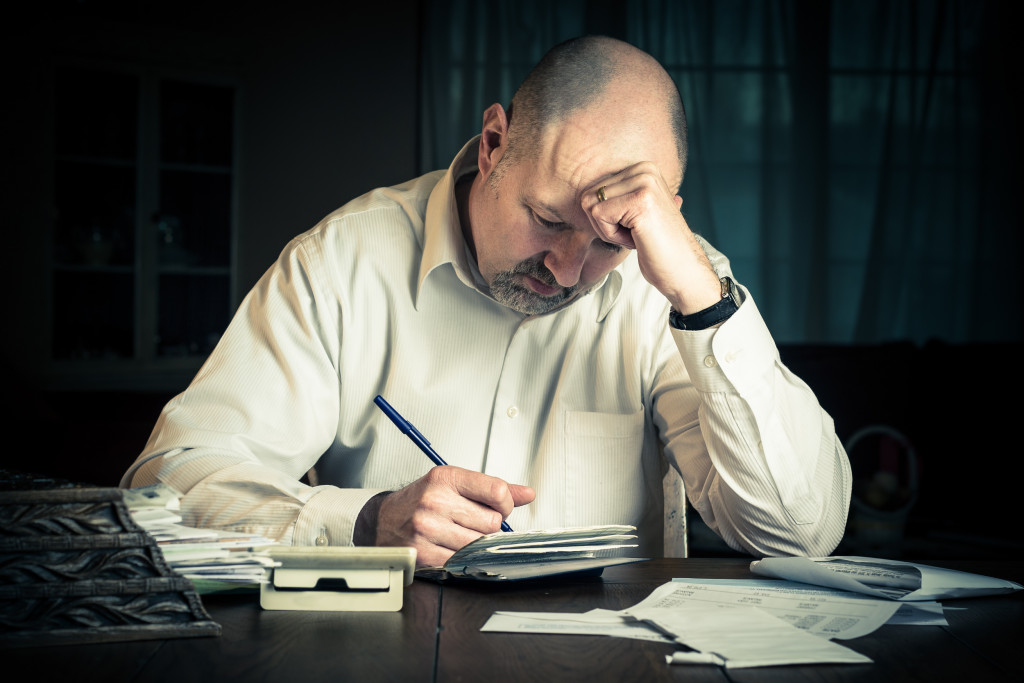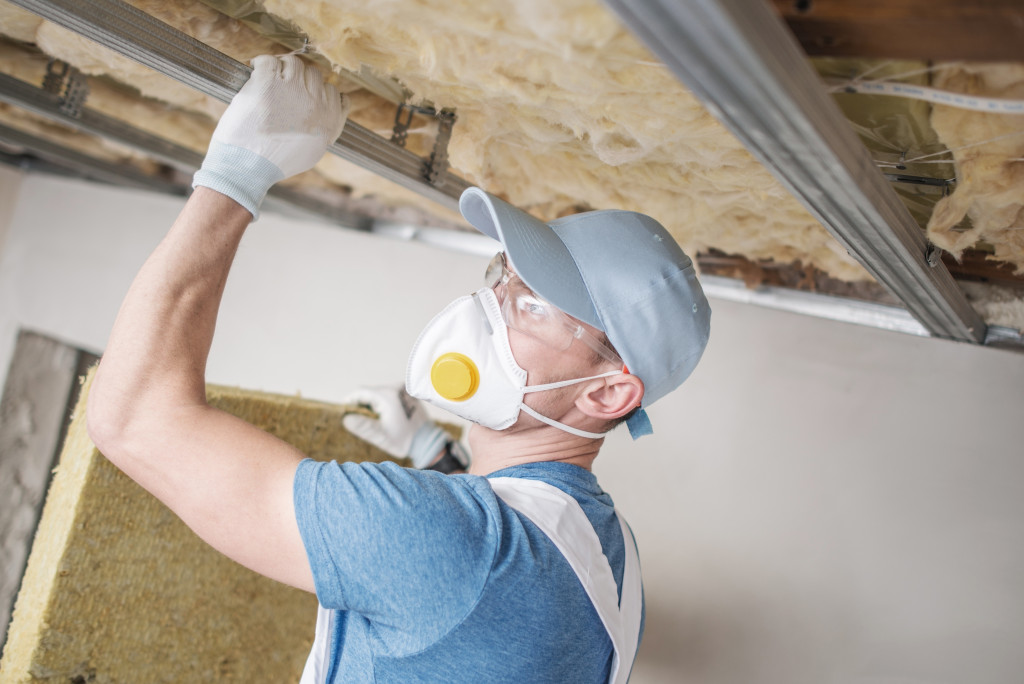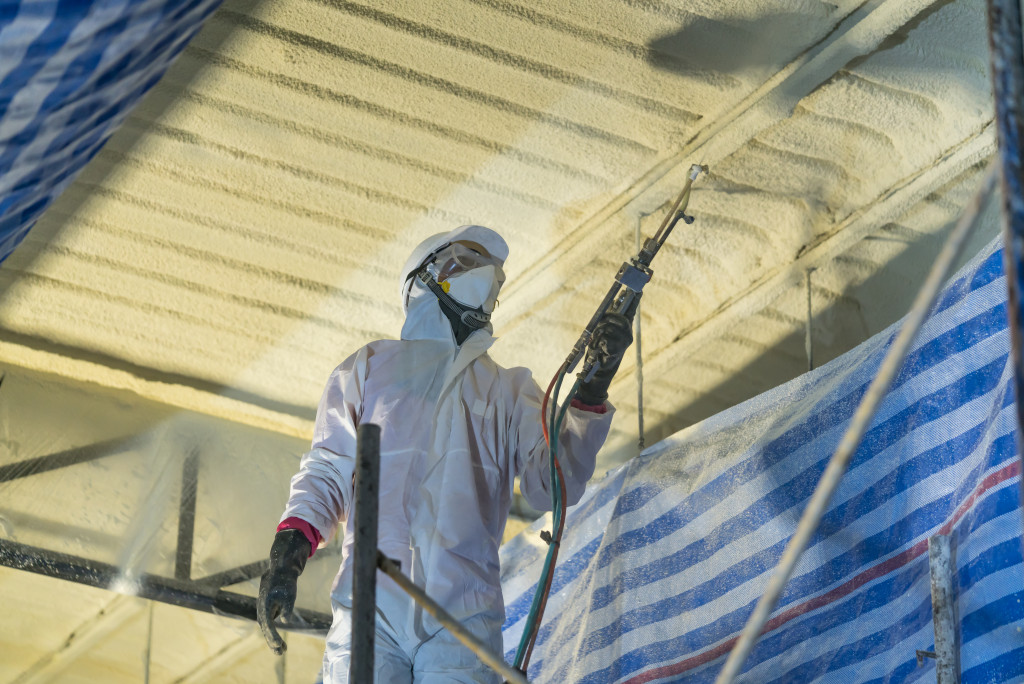- Poor insulation in the home can lead to high energy bills, health hazards, and decreased comfort.
- The type of insulation needed depends on the local climate and season.
- Replacing the roof every five years, investing in wall insulation, and installing solar panels help improve insulation.
- Drafts around windows and doors should be checked regularly for proper sealing.
- Adequate insulation helps maintain a comfortable temperature, reduces energy costs, and improves air quality.
Living in a poorly insulated home can be frustrating and unpleasant. Not only can it affect your comfort, but it can also lead to high energy bills and potential health hazards. As a homeowner, you want to create a safe and comfortable environment that enhances your family’s quality of life. Here’s what you need to know about the climate in the U.S., the reasons poor insulation can affect your family life, and what you can do about it.
The U.S. Climate
The United States is diverse, ranging from humid subtropical climates in the south to continental climates in the north. The type of insulation you need depends on your local climate and what season it is.
Certain states like Arizona and New Mexico can experience extreme temperatures, often reaching over 100 degrees Fahrenheit in the summer. In these regions, you may consider using reflective insulation to keep your home cool in the hot weather.
The Reasons Poor Insulation Can Affect Your Family Life
Poor insulation can lead to uncomfortable temperatures and air drafts throughout your home. Here are some ways that can happen:

Increased Energy Bills
One of the most significant impacts of a poorly insulated home is the increase in energy bills. If your home is not insulated correctly, warm or cool air can escape, while outside air can go inside. This situation will cause heating and cooling systems to work harder and longer than necessary, leading to higher energy bills. With better insulation, you can reduce the costs of your heating and cooling bills.
Health Hazards
A poorly insulated home can lead to severe health hazards like mold and mildew growth. When moisture consistently finds its way into a home, it can lead to toxic mold growth and mildew. Mold spores can cause respiratory problems, such as asthma attacks and allergic reactions, impacting everyone in the house.
Decreased Comfort
Another way a poorly insulated home can affect your family life is through decreased comfort. When a home is not insulated correctly, there can be drafts, cold spots, and hotspots throughout the house. This situation can make it challenging to regulate the temperature in your home, resulting in a less comfortable environment.
Reduced Indoor Air Quality
Poor insulation can also lead to poor indoor air quality, impacting your family’s health. Poor ventilation means that pollutants get trapped inside, reducing indoor air quality. This situation can also cause uncomfortable odors, challenging breathing, and affecting overall health.
Decreased Home Value
Lastly, a poorly insulated home can decrease your property value. When potential buyers put your house on their list, they’re less likely to consider it when the insulation is not up-to-date. A correctly insulated and rated property will attract more potential buyers due to the added perks of lower energy bills, improved air quality, and increased comfort.
Tips to Improve The Insulation of Your Home
Dealing with the problems above can help you insulate your home properly. But if you want to improve it, here are some tips for you:
Replace Your Roof Every Five Years
Your roof keeps your home insulated and protected against the elements. You should replace your roof every five years to keep it in good condition. This will help ensure your home is properly insulated and can withstand extreme temperatures outside. Check-in with your local residential roof replacement service for this. They can schedule times to check your roof and ensure no leaks, cracks, or other damaged areas.

Invest in Wall Insulation
Wall insulation is one of the most important aspects of home insulation. Investing in wall insulation can help save money on energy bills and increase your home’s value. Consider using spray foam insulation or fiberglass for maximum effectiveness.
Install Solar Panels
Solar panels are great for improving home efficiency and reducing energy costs. They also offer long-term savings and an eco-friendly option to power up your home. Installing solar panels on your roof is a great way to make sure that you minimize heat loss during extreme temperatures outside.
Check for Drafts Around Your Door And Windows
Drafts around windows and doors contribute significantly to poor insulation. Inspect your windows and doors regularly to ensure they’re properly sealed with caulking or weather stripping. Doing this can help keep the air inside and maintain a comfortable temperature in your home all year round.
Poor insulation can lead to increased energy bills, health hazards, decreased comfort, and more. As a homeowner, you need to make sure that you address these issues promptly to ensure your family’s safety and comfort. To do that, consider replacing your roof every five years, investing in wall insulation, and installing solar panels. With these tips, you can improve your home’s insulation and create a safe and comfortable environment.

